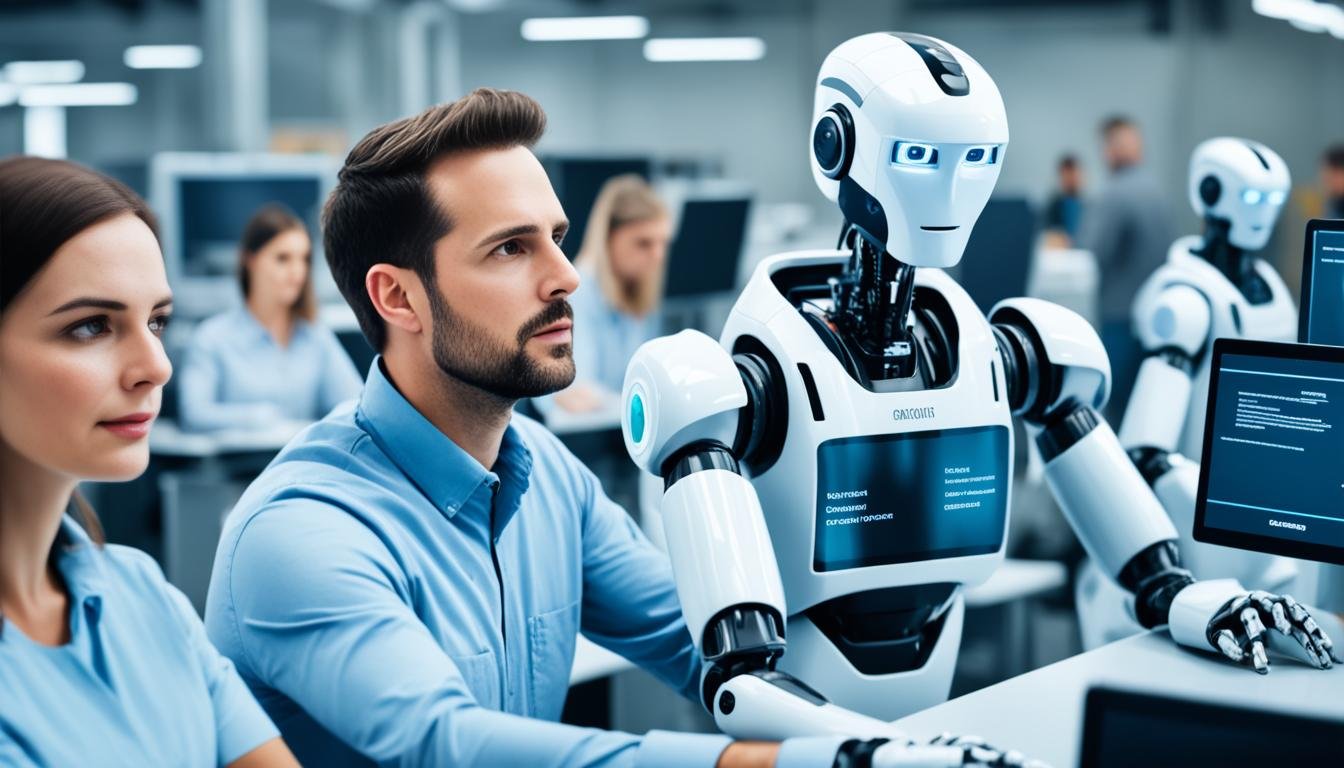A 2023 survey by ResumeBuilder found 37% of companies used AI to replace workers. Another 44% expect AI to lead to layoffs in 2024. AI could make workers more productive and create new jobs. But, it also threatens many professions.
Experts say some jobs will be fully automated in 5-10 years. These include customer service reps, drivers, programmers, and more. Yet, jobs like teaching, nursing, and creative work are less likely to be replaced.
It’s important to see AI as a tool to boost productivity, not replace human work. This approach helps both businesses and workers in this changing world.
Key Takeaways
- AI could automate up to 30% of US work hours by 2030.
- Jobs like customer service and driving are at risk from AI.
- AI can make tasks more efficient but also threatens jobs easily automated.
- Workers need to adapt and develop skills that work with AI.
- Businesses must balance AI use with keeping a workforce that adds human value.
Introduction to AI Job Replacement
AI has brought many benefits, making workers more productive and creating new jobs. But, it also has a downside – AI is replacing some jobs. This change affects workers in many fields, from healthcare to farming.
AI’s Impact on the Labor Market
A 2023 survey by ResumeBuilder found that 37% of companies have replaced workers with AI. Also, 44% of companies expect AI to lead to layoffs in 2024. Jobs like Customer Service Representatives and Computer Programmers might be automated soon.
Factors Influencing Job Automation
AI can handle big data, spot patterns, and organize information well. But, it still can’t match human skills in areas like creativity and empathy. This means some jobs might not be easily automated.
As AI gets better, we’ll see more labor market effects. The risk of ai job displacement and ai human replacement will grow. Companies and leaders need to plan for these changes to help workers and the economy.
“AI is already replacing jobs, responsible for nearly 4,000 cuts made in May 2023, according to data from Challenger, Gray & Christmas Inc.”
The rise of ai labor market effects and ai skills obsoletion is important to think about. The workforce must adapt to the fast-changing tech world.
Jobs at High Risk of AI Replacement
Artificial intelligence (AI) is getting better, making some jobs more likely to be automated. Jobs in customer service and transportation are at risk, especially those related to [customer service ai replacement], [drivers ai replacement], and [delivery workers ai replacement].
Customer Service Representatives
The customer service field is changing fast. AI tools like chatbots and virtual assistants are now handling more customer questions and needs. These smart systems work quickly and efficiently on simple tasks, making some human jobs less needed.
As AI gets better, customer service jobs might change a lot. People in these roles will likely focus more on solving complex problems and connecting with customers on a deeper level.
Drivers and Delivery Workers
Self-driving car tech is making jobs for drivers and delivery workers uncertain. Companies like Uber are working with self-driving tech firms like Waymo and Aurora. This could lead to less work for human drivers. Also, more autonomous delivery robots and drones are coming, which could change jobs for [drivers ai replacement] and [delivery workers ai replacement].
As AI and automation change the job world, it’s key for workers to keep learning and adapting. Focusing on skills like critical thinking, creativity, and people skills is important. This way, people can keep up and succeed in a world with more AI.
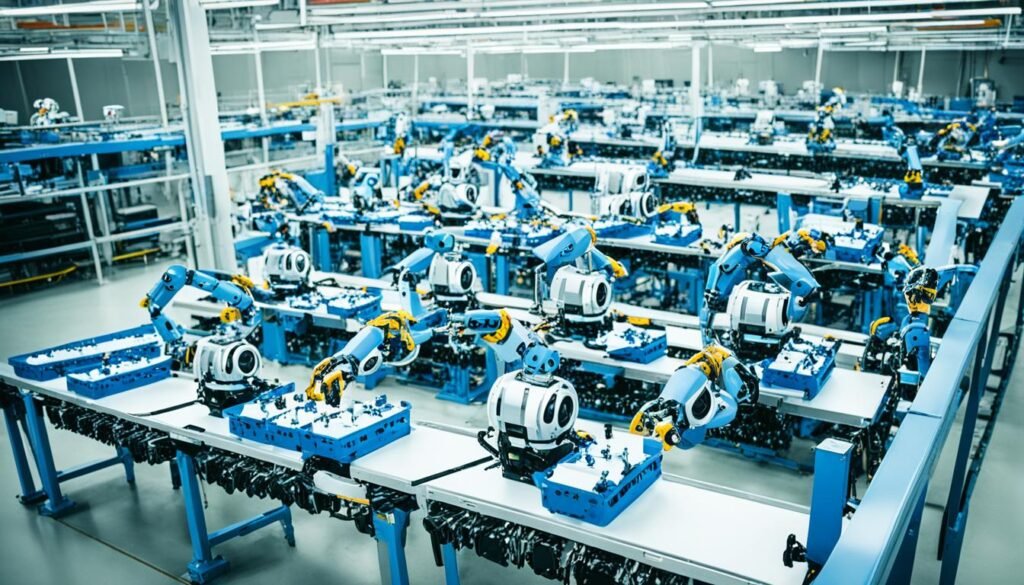
“The customer service industry is undergoing a significant transformation as AI-powered tools like chatbots and virtual assistants take on a broader range of customer inquiries and requests.”
who will ai replace
Programmers and Software Developers
Programming is more structured than human language, making it easier for AI to take over. Tools like ChatGPT can already write code, which might replace entry-level jobs soon. As AI gets better, programmers and software developers might face challenges from AI coding assistants.
Content Writers and Journalists
AI can help with simple writing tasks like emails and social media posts, affecting content writers and journalists. But, AI can’t match the depth and creativity of human writers in complex projects.
AI might replace some basic writing jobs, but skilled human writers will still be needed. This is true in industries where connecting with the audience and telling stories matters. AI will likely become a tool to help humans, not replace them.
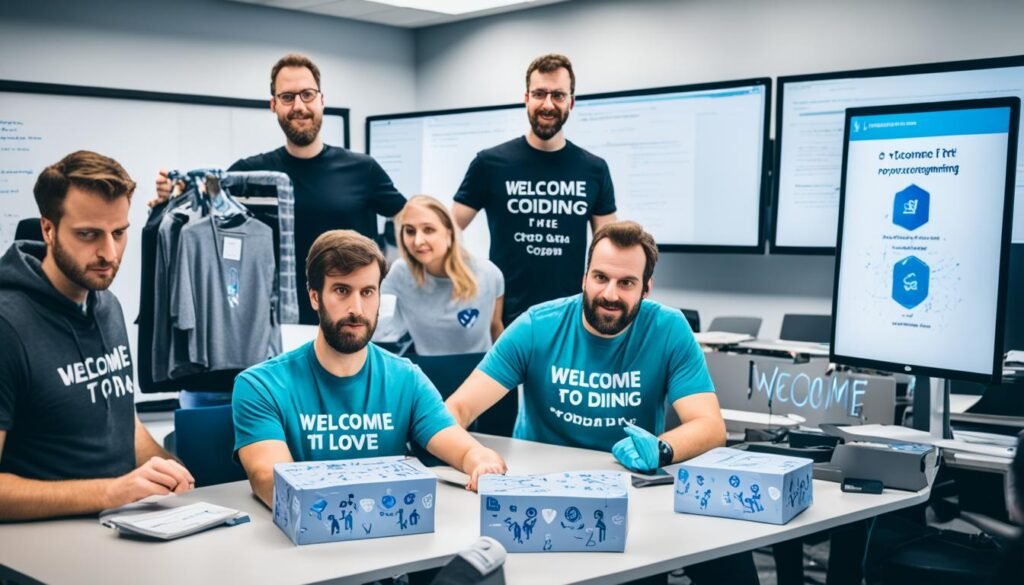
“AI is making advancements in corporate photography, automating basic photography tasks for corporate websites and events through generative AI technology.”
AI’s Impact on the Legal Profession
The legal world is changing fast with the help of artificial intelligence (AI). AI is making a big mark, especially in the work of paralegals and legal assistants.
Tasks like writing legal reports and sorting documents are now easier for AI to do. It can handle lots of complex data quickly. This means AI might take over some of the work that paralegals used to do.
But, experts say that human judgment and ethics are still key in law. AI can help make things more efficient, but it won’t replace the need for skilled lawyers. The legal field is changing, and the role of AI in this change is clear.
Paralegals and Legal Assistants
AI is set to change the work of paralegals and legal assistants a lot. There’s a growing worry about paralegals AI replacement and legal assistants AI replacement.
- AI can make a first draft of a legal brief quickly, which could change some entry-level paralegal tasks.
- Legal AI can quickly go through lots of case law and summarize it, making research easier for paralegals.
- AI can speed up the due diligence process by analyzing cases better, which could lower costs and risks.
Many legal experts believe that AI won’t replace lawyers. The legal field needs analytical skills, deep thinking, and strong client relationships. AI is more about making things more efficient, not replacing people.
| Potential AI Impact on Paralegals and Legal Assistants | Potential Benefits |
|---|---|
| Automation of repetitive administrative tasks | Increased efficiency and productivity |
| Streamlining of legal research and document review | Reduced time and cost for litigation |
| AI-generated legal briefs and memos | Faster turnaround on basic legal work |
The legal industry is changing with AI, and paralegals and legal assistants will see big changes. AI will automate some tasks, but human expertise and ethics are still crucial in law.
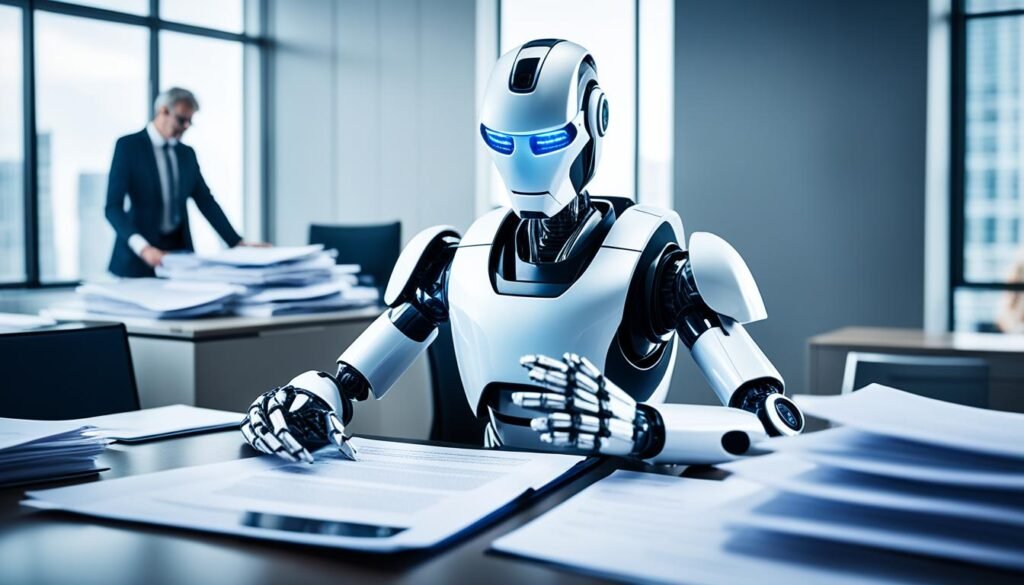
Finance and Accounting Roles at Risk
Artificial intelligence (AI) is changing the finance and accounting world a lot. Jobs like financial traders, market research analysts, and financial analysts might soon be taken over by AI.
AI can look at markets and help make investment choices faster and more accurately than people. It can also predict market trends better than humans. These changes, along with AI’s cost savings, could mean the end of traditional financial trader jobs.
AI can also take over tasks of market research analysts and financial analysts by analyzing lots of financial data. AI tools can give insights and forecasts quickly, which might make these jobs less needed soon.
The accounting world is also seeing big changes from AI and new tech. Experts say the AI in the accounting market could hit USD $39.57 billion by 2030. Cloud computing, blockchain, and AI are changing how accountants work, making tasks automated and boosting their strategic role.
“ChatGPT scored 18/20 in an accounting test, comparable to experienced accountants.”
These tech changes have already led to a drop in accountant jobs, with a 15.9% decline since 2019, says the U.S. Bureau of Labor Statistics. Young and mid-career accountants are leaving the field as AI and automation change the industry.
As finance and accounting change, it’s key for professionals to keep up and adapt. Using AI-powered solutions, learning new skills, and finding ways to use technology can help them stay relevant in a world that’s getting more automated.
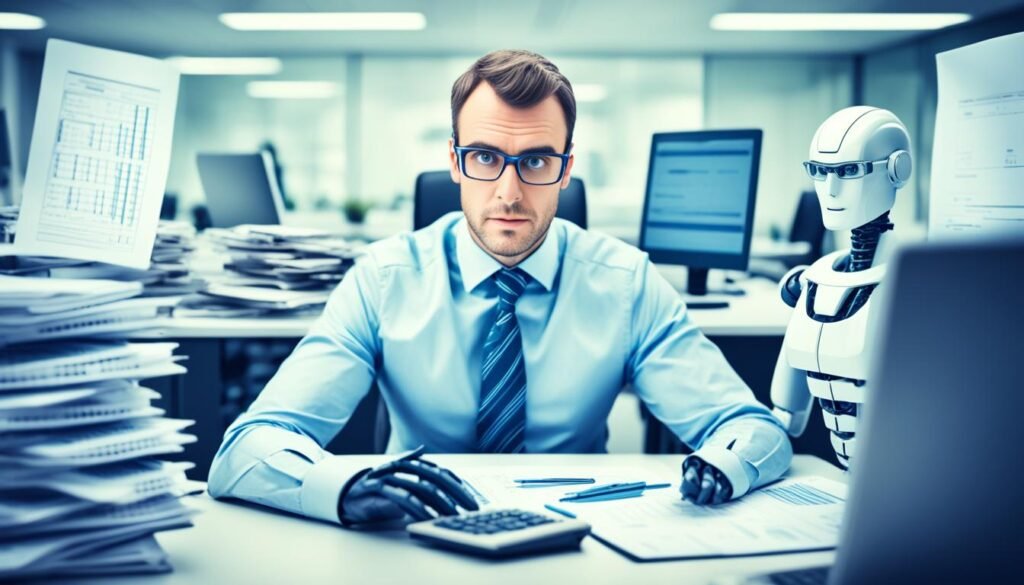
Manufacturing and Industrial Jobs
AI is changing the game in manufacturing and industrial jobs. Machines powered by AI can do tasks faster and more consistently than people. They handle things like assembly, packaging, and checking quality. Also, AI helps systems in warehouses find items and move around, cutting down the need for people.
Factory and Warehouse Workers
AI is making automation more common in making things and moving goods. This means jobs for factory and warehouse workers could be at risk. Studies say up to 30% of jobs might be automated by the early 2030s. Industries like making goods, selling things, and moving goods are most likely to see big changes.
In manufacturing, AI and automation have already cut down on manual jobs. Now, jobs focus more on keeping, setting up, and managing these new systems and robots. In warehouses, more robots and AI help manage stock and fill orders, making human workers less needed.
But not all jobs in these fields will be taken over by AI. Jobs that need complex thinking, creativity, empathy, or skill with your hands are safer. These include research, design, and certain manufacturing jobs.
“AI and automation could really shake up the manufacturing and logistics sectors, leading to many factory and warehouse jobs being replaced. This change might be tough, but it also means workers can learn new skills to do well in the changing job world.”
AI’s Influence on the Education Sector
AI is changing how teachers and tutors work in education. AI tools are making a big difference in the classroom, helping with group work and social skills. But, the human touch is still key. Teachers build trust and close bonds with students, making AI less likely to replace them soon.
Teachers and Tutors
Teachers are great at handling classroom conflicts and talking to parents. AI can make lessons and tests more tailored, but nothing beats a teacher’s personal touch. Tutors work one-on-one and know how to adjust teaching for each student, something AI hasn’t matched yet.
Even with AI’s growth in education, teachers ai replacement and tutors ai replacement aren’t close. The ai impact on education will likely be more about helping teachers and students work better together. AI will make teaching and learning more efficient, not replace people.
| AI-Powered Educational Tools | Impact on Teachers and Tutors |
|---|---|
| Personalized Lesson Plans and Assessments | Increased efficiency and effectiveness in lesson planning and student evaluation |
| Real-Time Problem-Solving Assessment | Improved tracking of student understanding and targeted support |
| AI-Powered Tutoring and Chatbots | Increased access to personalized learning and 24/7 support for students |
| Data Analytics for Student Progress Tracking | Informed decision-making and tailored interventions for educators |
As AI becomes more common in education, teachers and tutors will change roles. But, their human skills and care will always be crucial. Those who use AI to improve teaching will help students navigate the changing education world.
Healthcare Professions and AI Disruption
The healthcare industry is changing fast, thanks to AI. AI is making patient care, diagnostics, and things more efficient. But, it won’t replace jobs that need a human touch, like nurses and therapists. Simple tasks like moving medical supplies or getting patient data might go to AI. But, things like giving care at the bedside, talking to families, and calming patients’ fears are best done by humans.
Some healthcare jobs might be taken over by AI, though. Medical coding and billing are good examples. These jobs deal with a lot of data and might change as AI gets better. With the AI market growing fast, the future of these jobs is looking uncertain.
Medical Coding and Billing: AI Replacement Looms
AI could replace medical coders, making their jobs less secure. Speech recognition software might also change the work of medical transcriptionists. Medical billers might see their tasks, like submitting claims, taken over by AI too, which could lead to job losses.
As AI gets better, healthcare workers will need to learn new skills to keep up. Doctors and nurses might need to become AI ethicists to make sure AI is used right. The future could bring new jobs focused on AI in medicine, data-driven healthcare, and ethical AI use.
AI will automate some tasks, but the human touch is still key in healthcare. As AI does more paperwork, healthcare workers can focus on complex patient issues. This shows how important compassion and the human side are in healthcare.
“The future of doctors and healthcare workers will likely involve new specializations focusing on AI-enhanced diagnoses, data-driven medicine, and ethical AI.”
Using AI in healthcare needs a team effort. Teams that mix AI and healthcare pros can make big improvements and better patient care. By working together, the healthcare industry can handle AI’s changes well. This will make it stronger, more innovative, and better for patients.
Creative Industries and AI
The rise of AI in the creative world, with tools like Lensa and DALL-E, has brought both excitement and worry. These tools can make images that look like they were made by artists, but they don’t bring new ideas. Graphic designers and artists should be aware, as AI could change how they make a living.
But, the human touch is still key in creativity. Graphic designers who use their problem-solving and creativity will do well. They can make unique designs and solve problems for clients in ways AI can’t. Artists who create new styles and push art forward will be prized for their originality and vision, even with AI around.
As AI and the creative world change, it’s important for professionals to adapt and use new tech to their advantage. By using AI while keeping their creative spark, graphic designers and artists can stay relevant in the future.
FAQ
Which jobs are at risk of being replaced by AI?
Experts say jobs like customer service reps, drivers, programmers, and research analysts are at risk. Also, paralegals, factory workers, and financial traders might lose their jobs to AI. But, jobs that need human touch, like teaching, nursing, and creative work, are less likely to be fully automated.
How is AI impacting the labor market and workforce?
AI is changing the job market in many ways. It’s creating new jobs and making workers more efficient. But, it’s also replacing some jobs, affecting workers in healthcare, agriculture, and more.
What factors influence the automation of jobs by AI?
AI can handle big data, spot patterns, and organize info well. This makes it great for tasks like research and admin work. Yet, jobs needing creativity, empathy, and judgment are harder for AI to take over.
How is AI impacting customer service roles?
AI is making customer service more automated. Chatbots and virtual assistants now handle more customer questions. This trend will likely continue, with AI doing more customer service tasks.
Will AI replace driving and delivery jobs?
Self-driving cars are changing the need for human drivers, especially in taxis and rideshares. Companies like Uber are working with self-driving tech, which could affect jobs for human drivers.
How is AI affecting programming and content creation jobs?
AI tools like ChatGPT and Gemini are making some writing jobs uncertain. While AI can do simple programming and content creation, complex human creativity is still needed. AI can help with repetitive tasks, but human content creators are still in demand.
Will AI replace paralegals and legal professionals?
AI can do many tasks paralegals do, like legal reports and research. But, legal work needs human judgment and ethics. So, AI will likely help legal professionals, not replace them.
How is AI impacting finance and accounting roles?
AI is a threat to jobs in finance, like trading and analysis. It can analyze markets fast and accurately, making predictions better than humans. AI trading can also outperform human traders.
Will AI replace factory and warehouse workers?
AI is making machines in factories work faster and more consistently. In warehouses, AI helps find items and move around, reducing the need for human workers. These changes mean factory and warehouse jobs could be at risk.
Will AI replace teachers and tutors?
AI is helping in classrooms, but it can’t replace human teachers. Teachers build trust and handle complex social situations better than AI. So, AI won’t likely replace them soon.
How is AI impacting healthcare professions?
AI is improving healthcare by helping with patient care and diagnostics. But, it won’t replace jobs that need a human touch, like nursing. AI might automate tasks like medical coding, though.
Will AI replace graphic designers and artists?
AI can create art, but it’s limited to existing styles. Human artists bring new ideas and styles to art. While AI might change graphic design, human creativity will always be needed.
